Can You Eat Roosters?
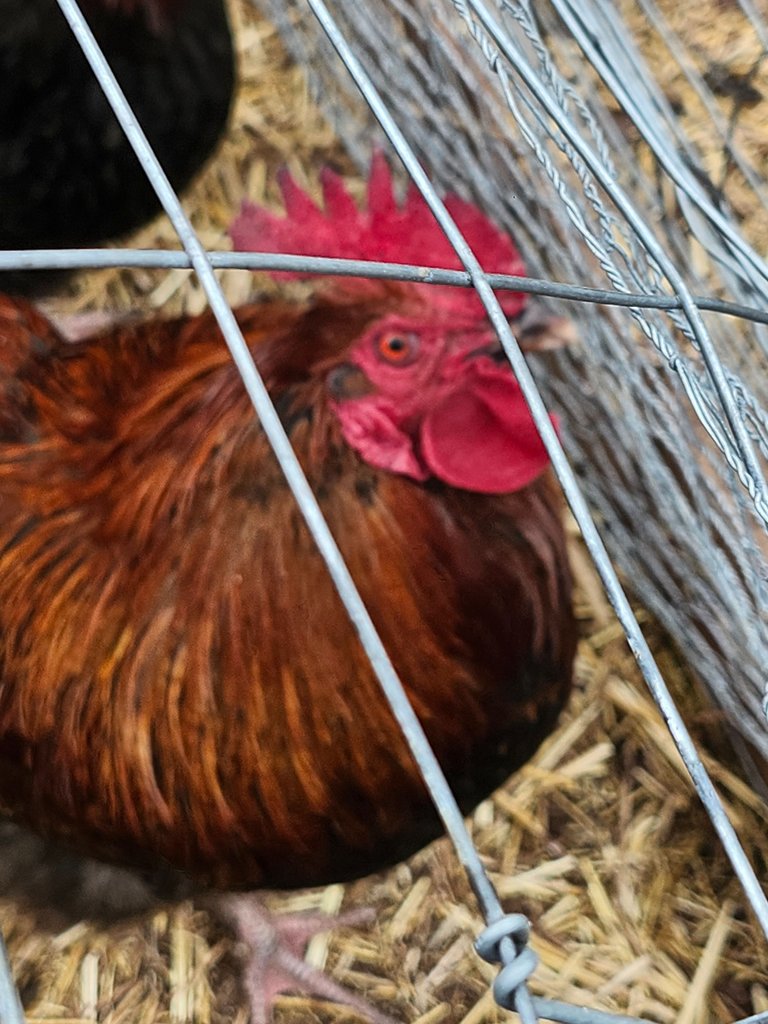
Can You Eat Roosters?
The short answer is yes!
However, there are some caveats.
Depending on breed, age, how you're feeding them, ect... you may or may not want to.
If you search the internet you'll find conflicting opinions on this.
Some people raise broilers and only raise males so they fill out faster. These are usually killed and packaged at a pretty young age so the taste and texture of the meat isn't much different than their female counterparts might be.
But what about older roosters?
I'm going to chalk this one up to personal preference. Older roosters tend to have meat that is tougher. So I'll share what I've been doing with them so that we get the most out of what we have and aren't wasting life unnecessarily.
Recently I culled 4 roosters. They were mostly leghorn with some other genes in them I'm unsure of. They grew and acted like leghorn.
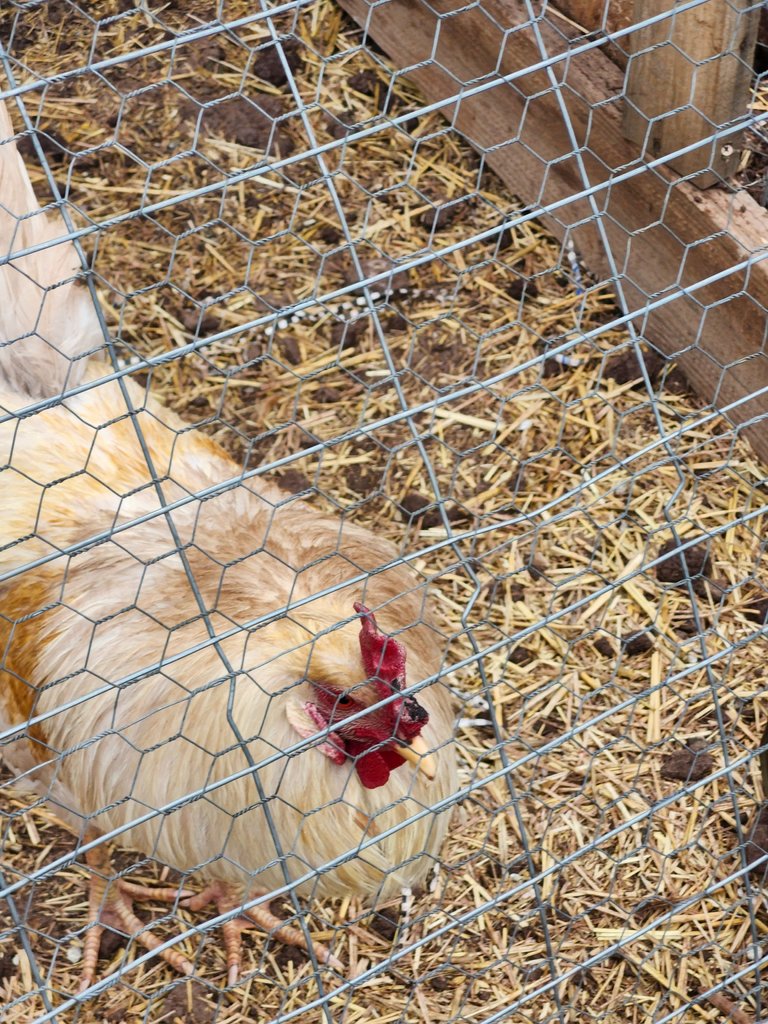
You can see they have some buff coloring. Maybe from some colored leghorn genes or from a different breed. Unsure.
I'm not that fond of this breed. They aren't that nice in my experience, sort of act like tweakers. They also grow a bit lanky for my preference and lay white eggs. I like color in my birds also so having an only white bird would be cool to me only if there was something really special about them. To me though, leghorn isn't a very special breed.
That said, we had 4 extra that we weren't going to breed to get stock up so we decided to eat them.
Here's what I learned from that experience.
First of all, since we have 0 money, and have had to attempt to feed our chickens with food stamps, I've been very limited on what I can feed them.
After a ton of research I found that oats are about the best grain to feed if you can only feed one thing. But they lack the protein level that the birds really need.
So I feel like my birds grew up small. They were never sick, injured or seeming malnourished, they were just small.
After culling them, the average dressed weight was only 2.5 lb each.
That's a pretty small bird. It was hard to even fit my hand inside the cavity for evisceration.
We're so insanely poor that we decided to eat them and see how it goes though.
So we dressed them and put them in the freezer until the other day when we finally decided to start eating them.
Look guys, unless you're as poor as we are, your not going to like eating roosters.
That said, there could be breeds, ages, types of feed, that can change my thoughts on this.
Leghorn though, fed with only 11-13% protein for a year, you won't like.
After boiling for an hour plus, it was almost impossible to chew through the leg and wing meat. The breast meat was tolerable at beat.
After the second meal I made with the rooster meat I decided to not eat even the breast meat. Even as poor as we are I just figured out ways to use it so we weren't wasting it at least.
My big thing with chickens is broth.
I wrote a series of posts a while back called The 50 Cent Meal. Where I show how to create meals for 30 cents each, actually.
In the case of these roosters these were not 50 cent meals. After feeding them for a year and losing our entire stock to a dog, if I were to figure the amount we spent in feed, divided by the amount of total dressed weight we got after the year... this would be 100 dollar a pound meat!
Anyway, in The 50 Cent Meal series, I share how much food/nutrients you can really get from a single chicken. Mostly by getting the most you can out of broth.
So, we decided to go with broth as the main way to use what we've got here.
You can get an immense amount of broth from a couple of chickens. Even small ones like this.
The truth is that you can keep pulling broth from chicken, bones, cartilage, skin for quite some time and each time still pull plenty of nutrients. The nutrient level does go down some as you continue to pull broth but it's a great way to really get the most out of chicken. Especially chicken that's otherwise to tough or something.
How to make broth.
This couldn't be easier. It's essentially chicken tea. (You can do anything you see me doing with chicken, with nearly any other animal)
Throw chicken in pot and fill pot with water.
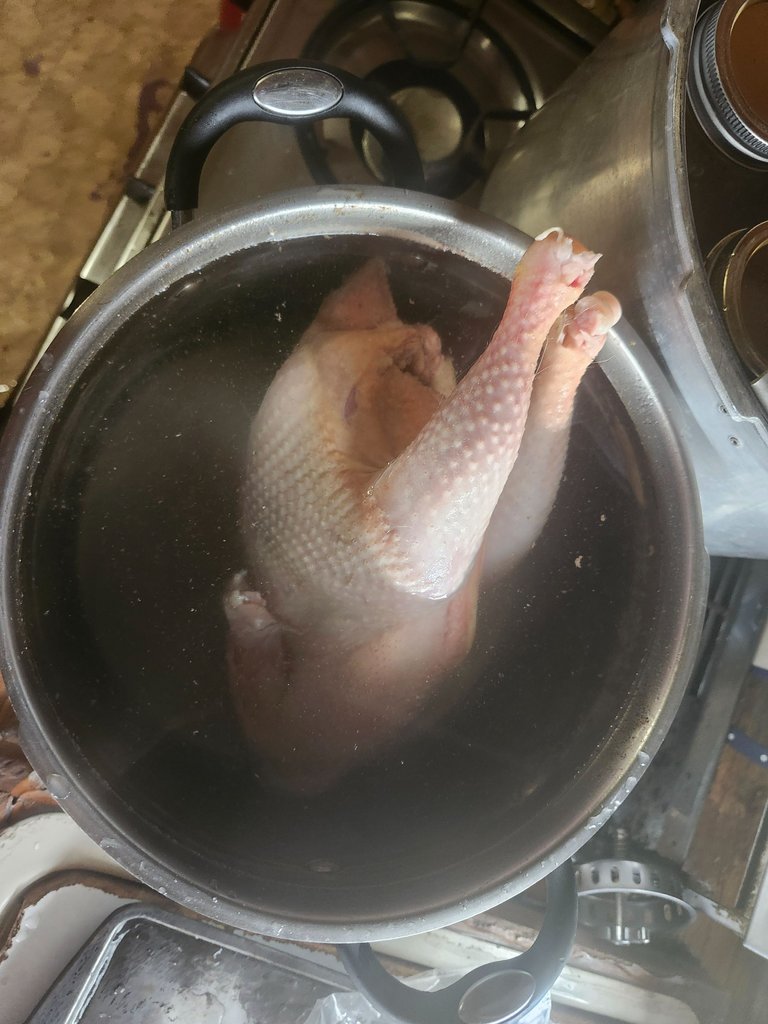
Boil that pot of chicken in water for like an hour. I would do half hour at least. Half hour is pretty good for first boil. Boil longer on each successive boil. (Remember, mom says "Boil it till it don't taste like chicken anymore!" Lmao.)
Strain that broth.
Before using, add salt to taste. (It takes a lot of salt to get homemade broth to taste good. Don't be shy here)
That's it, that's broth making.
If you're now thinking about things like how much chicken per water and all that...
Chill...
Slow down...
Stop over thinking.
Boil the chicken in water. Use the water.
Seriously though, don't just boil it once.
Boil that chicken, or carcass, again and again in new water. It's a total waste to only boil once.
Anyway, that's it, broth is so super easy to make (and so stupid cheap) that there's literally no reason to ever buy it.
Now, if you're the type of person that never prepares meals, or ingredients for meals, in advance this is of no use to your at all. Because you're not storing your extra food production.
Ok, back to using the roosters.
We made a ton of broth. 6 gallons from 3, 2.5 lb dressed birds. I easily could've made more. We couldn't really afford to store more though.
I'll tell you this, you will never know the difference in broth from roosters vs hens. It's literally the same. This makes broth potentially the best way to use a tough bird. This is also the reason you'll hear the term "soup chicken", or "soup hen". People are saying with this, that the meat is likely tough, yet will make good broth.
We canned the broth we made, minus a gallon or two for chicken noodle soup.
We decided not to eat any of the meat after the second batch of chicken noodle, having this time not used any of the leg or wing meat.
But we didn't waste it.
After boiling the first time we took all 3 boiled chickens (Pic only shows 2)...
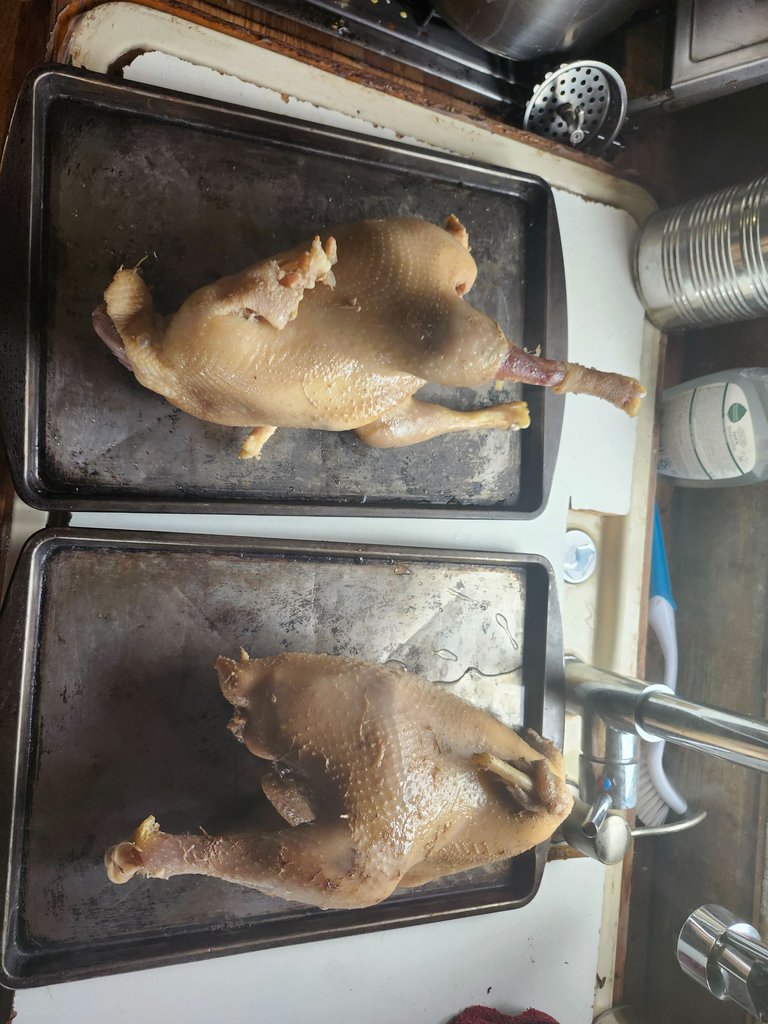
Pulled the meat and separated into 3 sections. Breast meat, leg and wing (with anything not bone), bone.
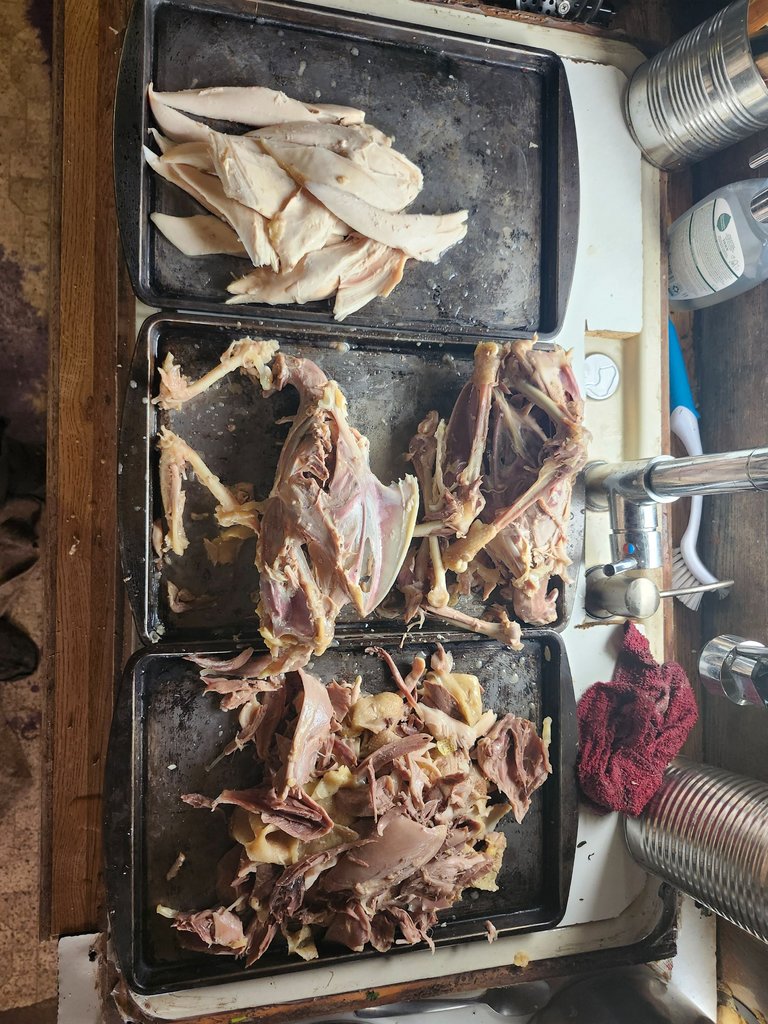
I boiled the bone pile again. This time I went 3 hours to try to pull marrow and more of the collagen. (Since we weren't collecting more broth this time)
Then I pulled all the other stuff I could from the bones and having no more places to put broth I tossed the bones.
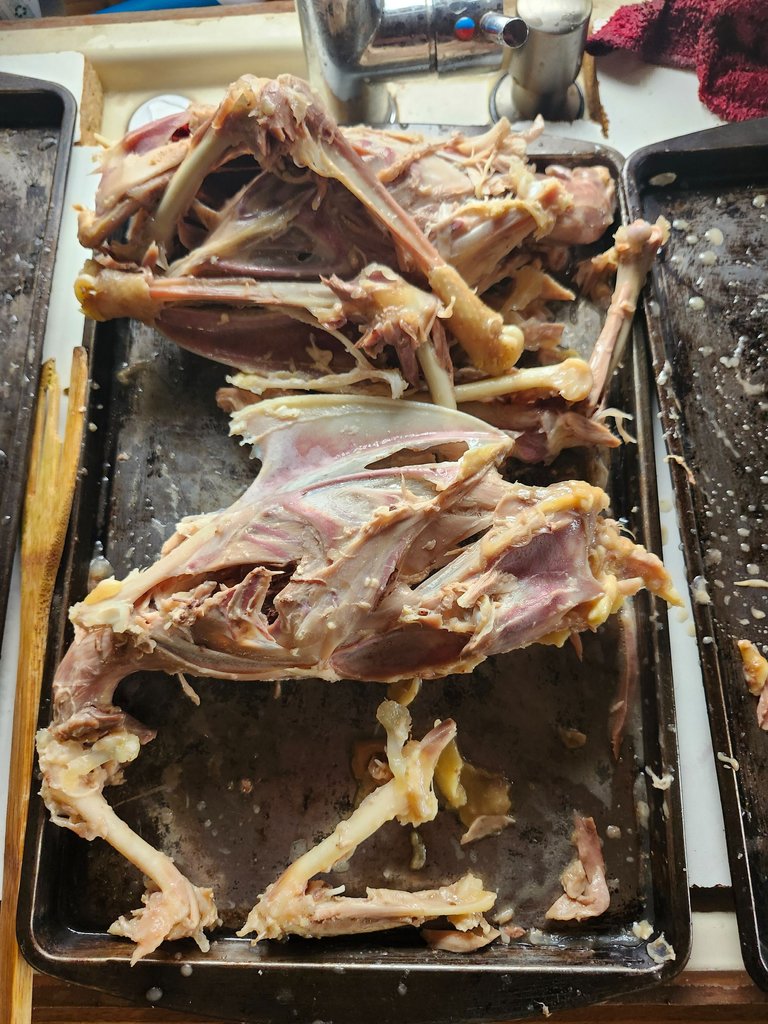
These could've been boiled again very easily. And again, you get the picture.
I didn't decide to not use the breast meat until after trying it alone in chicken noodle. Still to tough, so it went into the other meat pile.
Everything that wasn't bones (or good meat if you have some) went into the other meat pile. This pile, we're making cat food with.
So canning broth is super easy also...
If you have the tools to do so.
You need a pressure canner and jars/lids at minimum.
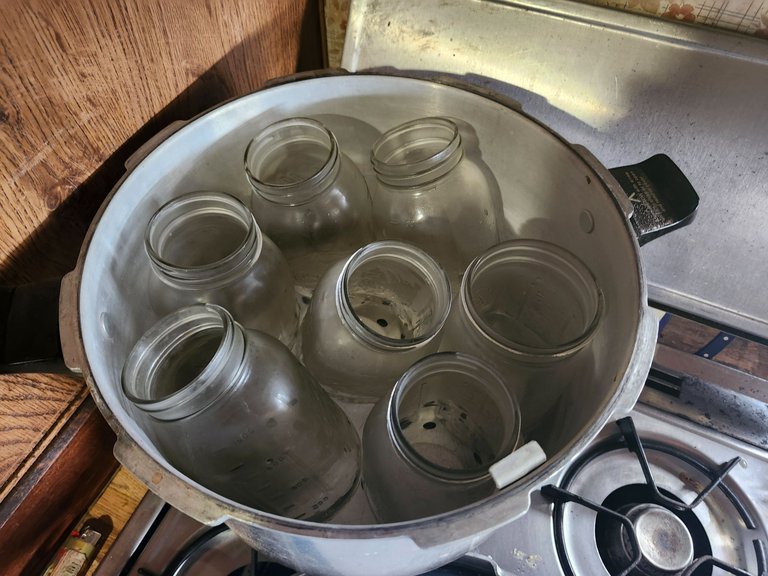
Let's get to that in the next post.
Well, until we have a better idea, or better roosters, this is how we're handling roosters.
Make as much broth as possible, and make cat/dog food with everything that's not bone.
Thanks for reading.
Can You Eat Roosters?
by Michael David
Co-founder of #thealliance and loyal since before the egg.




Instagram|Facebook|Discord|Telegram

Supporting:
@thealliance|The PIMP District
Personal Projects:
@sneaky-ninja | @the-singularity | @block-soup
Our old birds each year we got as much meat from the carcasses as we could and ground the meat up for ground chicken. We used that in all kinds of things. I would make bone stock from the carcasses and was careful to ALWAYS add vinegar to leach the minerals out of the bone. The minimum time I simmered the carcasses was 12 hours. I recently found 18 qt roasters at a tag sale and this year have been using those. I made 10.75 qts of of bone stock this week in 1 of them. The bone stock always gelled when left at room temperature to cool.
Yea, bone stock should be longer boil. I have to pay attention to my propane usage though so currently I'm afraid to run that long. If we run out, I cannot afford a new tank and we could be out for weeks. 3 hours was all I felt safe doing and was cringing at that. It did not soften the bones really, I was just hoping to get more nutrients that a normal short boil. I have a large roaster but its electric and our power situation is less than desirable. I can only use it really in the day time. But I do have plenty of pots of varying sizes.
Seems everyone is pointing out grinding the meat. I'll be looking for a grinder. I've wanted one for a while now. This batch is going to catfood but i'll be grinding next time. Great idea.
Yea i'm sure the bone stock you're making gels well, tons of collagen in that broth. Ive been researching collagen and the type that is in chicken predominantly is type 2. It's the type for joints. I'm pretty sure that collagen rich broth from chickens might even help arthritis.
I had not heard there are different types. Good info to know!
I guess there are 5 types the human body needs most. they just call them type 1-5. They are needed in that order with type 1 being about 90% of what you need. each one doing different things. type 3 is from beef. So when you see all the hype about bone broth and see it all bein sold from cow... its sort of a scam, a little. because that type of collagen is needed less than type 1 and 2. Anyway, fish, quail, and even goat are type 1 :)
sorry, both these accounts are me. I use themothership for voting people that comment my posts.
I really appreciate you posting this info. I prefer chicken, but at the moment, the beef bones, organic from our local farm, were on sale. I plan to do chicken when I can find a trusted source. Thanks again!
you bet :)
well, i got a meat grinder and ground the rooster breast. not bad. we made tacos :)
Cool! It’s good for cream soups, casseroles, chicken spaghetti, etc…
i'm noticing a different flavor also. my son doesnt notice but i do. For me i think it needs to have a heavy flavor mixed into it. like a lot of spices. The dishes you recommend likely have enough flavor to mellow it too
Ground chicken is good, I have also made pretty good boiled rooster by simmering them very gently until the meat falls off the bone and the cooking fluid is reduced enough that the oil separates
Boiling longer seems like a decent option. Once I can afford more propane I will try that, along with a longer boil on the bone. That will usually soften anything else. Man these birds were tough lol. They were tough in the way the acted too lol.
looks like a grinder is in order for us.
The trick is also to simmer gently rather than boil furiously
yea i did that on the 3 hour boil
grinding it was the move :)
Excellent!
You can also pressure can (or just pressure cook) your meat, which will help make it a bit easier to chew. I've also heard you can put it through a meat grinder (hand cranked ones at yard sales for $1, probably find one to trade) and make ground chicken that is pretty good for stuff like tacos. I haven't tried that one myself yet.
If you have any growing space at all, kale is a fairly high-protein crop you can feed your chickens that grows prolifically just about everywhere. Various types of worm and bug boxes can be used to grow some high quality meat protein for your chickens, and they can be built with wood scraps and twigs.
All great ideas!
I had not thought of pressure canning or grinding the meat. I'm sure either one of those might make it better. We use ground turkey a lot for tacos. Unfortunately in Cali people over value everything they have used lol. I won't be finding a grinder for a dollar lol. I have seen them on cl though for near new price. I grew up using those grinders regularly. I'll be looking for one now though, been wanting one for other things anyway.
I have tons of growing space but for us it's water that is the issue. We are in high desert and the rainy season is almost over. I have water collection set up but had to settle for used roofing so i have tons of leaks and i'm not collecting what we should or even close. Have to bring water in and my car is to small to haul any. We do have a killer water tank I built from scratch to hold a bunch though. We've tried gardens every year and it's always water that kills us (and an overwhelming amount of ground squirrels lol). We are raising mealworms for extra protein now. It will be mid summer before we can feed them to the chickens though. We intend on raising black soldier fly larvae this year as well. I'm also about to start duckweed. I know, it is raised on water, but the water is stagnant and it dont use much so i'm assuming it will use less than regular crops and be easier to manage with our water issue. Once I can afford it, I'll be turning my back seat into a water tank to haul water. Then we can focus on some crops both for us and the chickens.
tried grinding it and it was decent. made tacos